Gum Disease Treatment – Fort Worth, TX
Eliminate the Damaging Effects of Gum Disease
Have you noticed that your gums bleed when you brush or floss or that you have chronic bad breath? These are common signs that you suffer from gum disease, a common condition that impacts one out of two adults in the nation, according to findings from the Centers for Disease Control and Prevention. Dr. Vasquez aims to tackle the problem before it progresses and causes permanent damage to your smile with gum disease treatment in our Fort Worth, TX, dental office. Call us today to discover what we can do to improve the health of your smile.
Why Choose Harris Parkway Dental Care for Gum Disease Treatment?
- Calming Dental Sedation Options Available
- Prevent Additional Oral Damage
- Customized Gum Disease Therapy
What is Gum Disease?
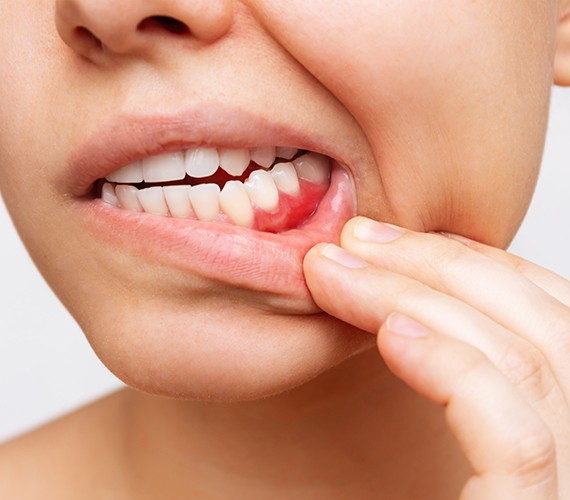
Gum disease is a bacterial infection that attacks the soft oral tissues that surround your teeth (the gums) and causes bleeding, inflammation, and redness. When plaque forms and remains unchecked, it can cause gingivitis – the earliest stage of gum disease – and quickly progress to periodontitis, which causes gum pockets, bone deterioration, and eventual tooth loss. If left untreated, the disease can negatively affect your overall health, causing cardiovascular disease, cognitive decline, and other serious problems.
Symptoms of Gum Disease
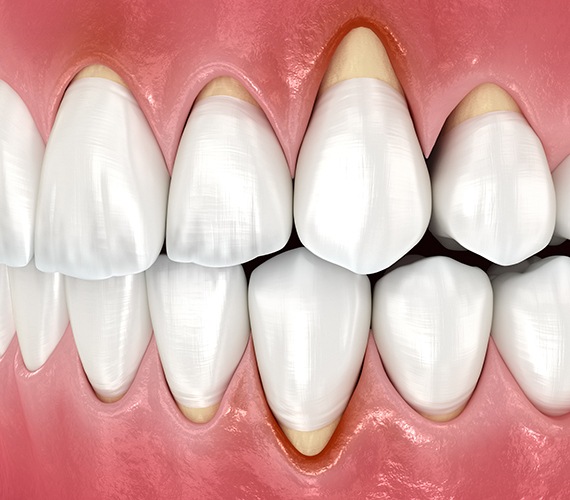
The most obvious signs of gum disease are those that can be easily reversed if caught early – bleeding, swelling, and redness. However, other symptoms include:
- Bad breath (halitosis)
- Gum recession (teeth appear longer than before)
- Loose teeth
- A change in the way your teeth fit together (your bite)
- Pain while chewing
- Gum tenderness
- Increased sensitivity
How Do We Treat Gum Disease?
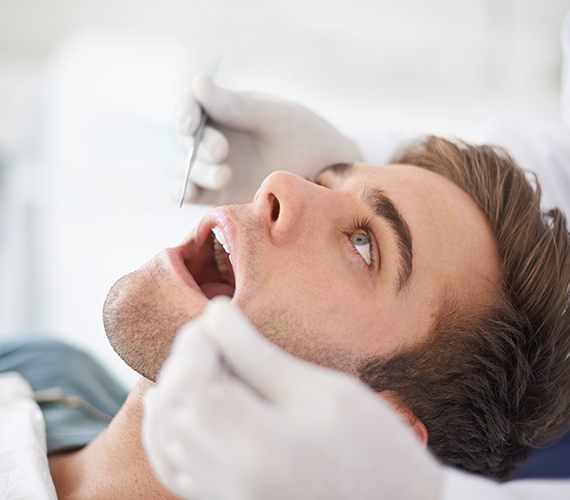
The only way to determine how we will treat gum disease is by performing an oral examination. Our team can determine how severe the problem is. Based on whether it is gingivitis, periodontitis, or advanced periodontitis that we need to treat, we’ll likely suggest one of the following options (or both):
Scaling & Root Planing
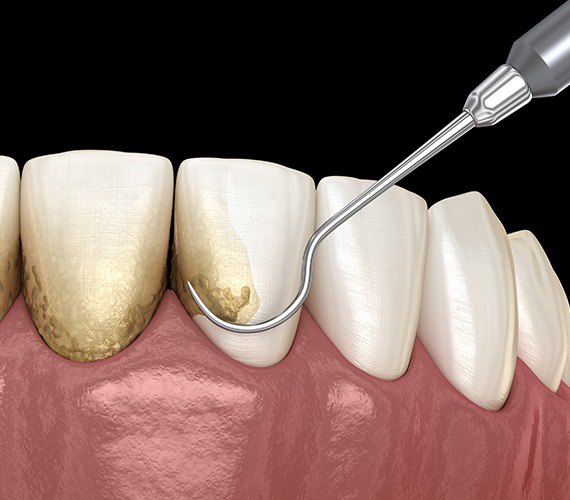
Scaling and root planing, also commonly referred to as deep cleaning, is a two-step gum disease therapy option. During the first part, our team will thoroughly clear away all plaque and tartar from your mouth, as far down as the pockets of your gums. This will control bacteria accumulation and help reduce the effects of the disease. Lastly, we’ll smooth out the roots of your teeth to allow your gums to healthily reattach and provide them with protection. During your initial consultation, our team will go over the entire process as well as what you should expect afterward. Until then, here’s what you should know about scaling and root planing.
Do I Need Scaling & Root Planing?

Also known as a “deep cleaning,” scaling and root planing is a procedure designed to treat the gums for early indications of periodontal disease. These can involve swelling, bleeding, and inflammation, which will need to be treated to prevent any infection from spreading and leading to damage to the rest of your mouth. With scaling and root planing, our team can effectively remove plaque and bacteria that have accumulated beneath and around the gumline. This essentially involves smoothing the roots of your teeth in order to encourage proper healing in the gums so that they can reattach to your pearly whites.
The Process of Scaling & Root Planing

Scaling and root planing usually take two appointments to complete. Firstly, your dentist will perform “scaling” by meticulously scraping away any plaque and tartar that’s developed around and underneath the gumline with special dental instruments. This will allow us to effectively target the pockets beneath the gumline where bacteria has accumulated.
After scaling is finished, our team will perform root planing. This process involves smoothing out the surfaces of your teeth that are typically hidden under the gums. This enables the gum tissue to stick to your teeth more efficiently as well as making it difficult for germs to settle there in the future. With this procedure, you can end up reducing your risk of periodontal disease significantly.
Aftercare Tips for Scaling & Root Planing

For most patients, it’s normal to experience some mild soreness and sensitivity after undergoing scaling and root planing. You might also notice some swelling around the gums, but this should be short-lived, lasting around a few weeks. For a smooth recovery, make sure to:
- Carefully brush your teeth with a soft-bristled toothbrush and fluoridated toothpaste twice daily
- Floss at least once every day
- Rinse with salt water after meals to avoid irritation while also washing out food particles
- Avoid spicy, acidic, or hot foods
- Implement a soft diet at least for the first 48 hours following your treatment
- Refrain from excessive physical activity right after your procedure
Antibiotic Treatment
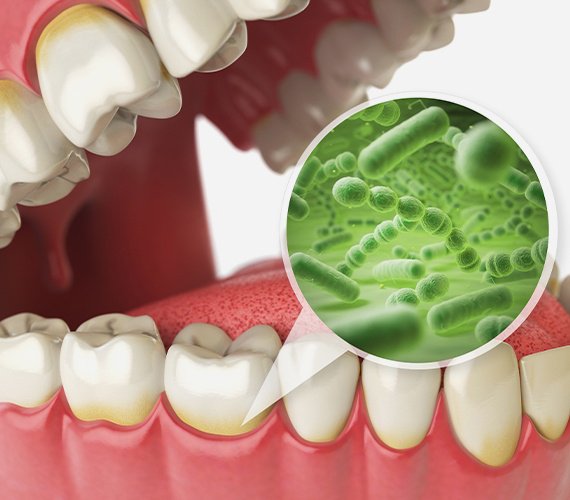
We typically suggest antibiotic therapy in conjunction with scaling and root planing to help control the disease and restore the health of your teeth and gums. Because gum disease is caused by a build-up of harmful oral bacteria, taking antibiotics can help preserve your gum tissue and prevent tooth loss by helping your body fight them off. The antibiotic we use is Arestin, which is administered orally and will act to reduce uncomfortable side effects.
